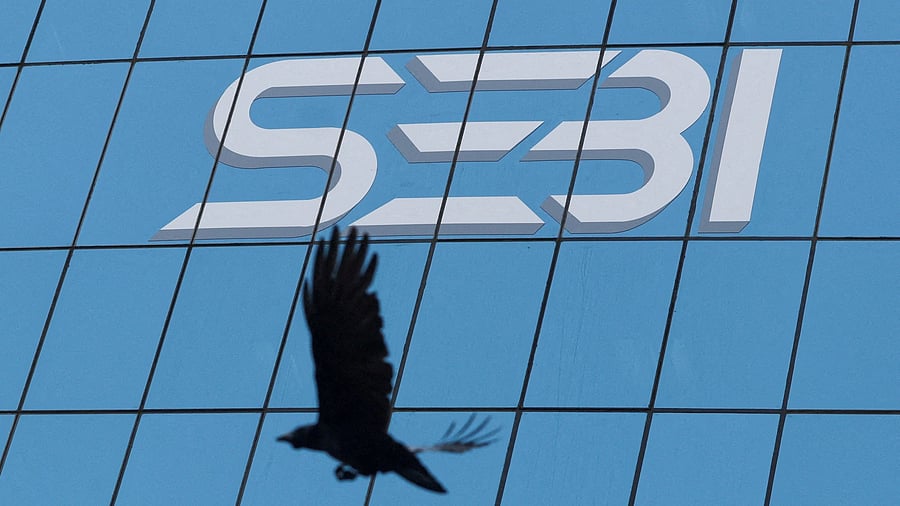
The SEBI logo.
Credit: Reuters File Photo
Mumbai: A top panel of SEBI is meeting on Tuesday to consider placing stricter limits on positions in index derivatives in the Indian markets, two sources with direct knowledge of the matter said.
The Securities and Exchange Board of India (SEBI) is looking at the rules on equity derivatives after the regulator temporarily banned US high frequency trading firm Jane Street from the Indian markets saying some of its trading strategies were manipulative and left retail investors with losses.
SEBI's secondary market advisory committee, tasked with framing equity market policies, will discuss and make recommendations on intraday limits for index derivatives to prevent large traders and trading firms from accumulating significant exposures, the sources said.
They declined to be named because they were not authorised to speak to the media.
In February, SEBI proposed an intraday limit of 10 billion Indian rupees ($114.89 million) for positions taken in index derivatives but scrapped the plan following opposition from the large market making firms. Instead, SEBI asked exchanges to monitor trading firms' intraday positions.
The panel will also discuss the maximum allowable exposure an individual trading member can hold in equity derivatives and the exchange monitoring mechanism, sources said.
Its recommendation will be put to the market regulator's board before a final decision is made.
SEBI did not immediately respond to an emailed request for comment.
In May, SEBI set the total option exposure for a firm across its entire portfolio at the end of the trading day at 15 billion rupees, without specifying limits on trading members.
India's equity derivatives market accounts for nearly 60% of global trading volumes, although retail investors have recorded large losses.
In the 12 months ended March 31, 2024, retail traders losses totalled 524 billion rupees, a SEBI study showed. In contrast, proprietary traders, who make trades for financial institutions, made gross profits of 330 billion rupees over the same period, while foreign investors made 280 billion rupees.
SEBI has already increased the minimum lot size and reduced the number of derivatives contract expiries to control trading.
The additional steps being considered are part of the structural reforms to manage market risks and curb the activity of large firms in the Indian derivatives market, one of the sources said.
The ban on Jane Street was lifted last month after the firm deposited $567 million in an account that gives SEBI rights over the money until it has completed its investigation. ($1 = 87.0375 Indian rupees)